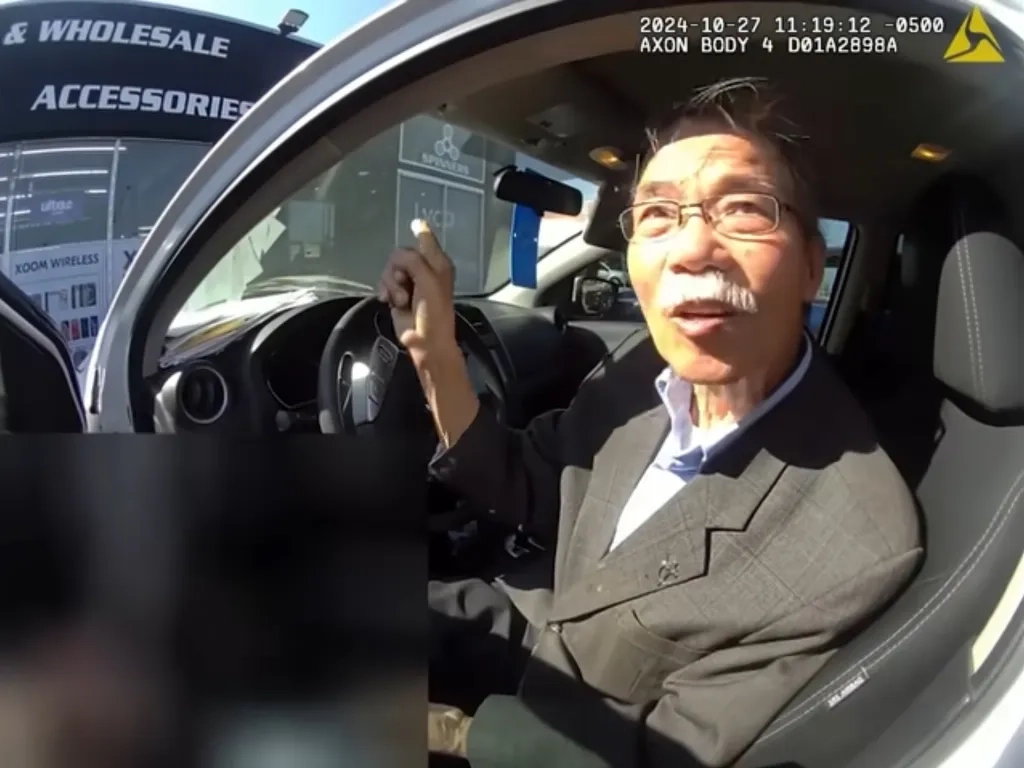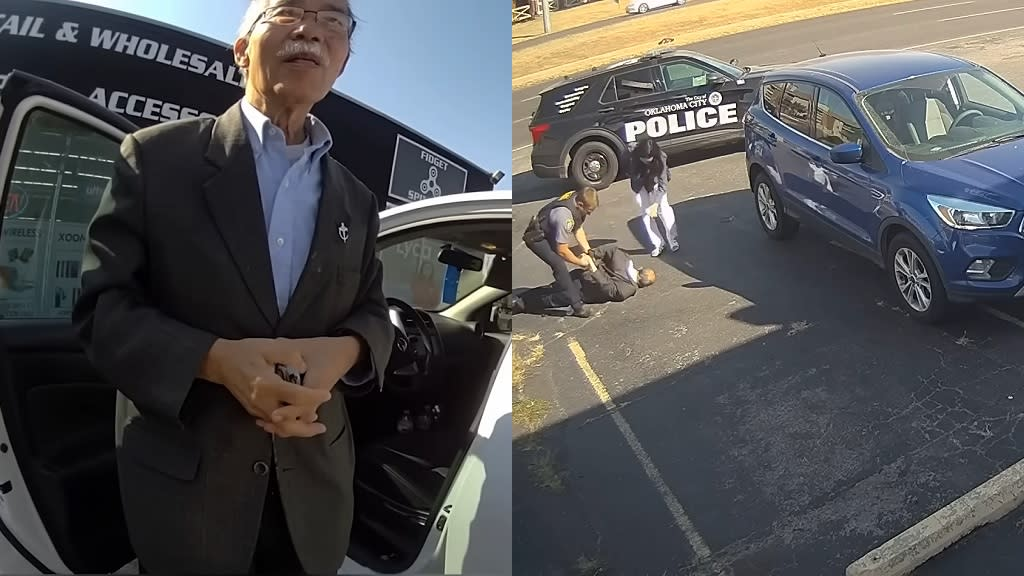The release of distressing footage showing an encounter between a 70-year-old man with bone cancer and an Oklahoma police officer has ignited public outrage and renewed calls for accountability in law enforcement. This incident, involving excessive force during a routine traffic stop, highlights critical issues in policing and underscores the need for systemic reform.
The Incident: A Routine Traffic Stop Gone Horribly Wrong

On October 27, a seemingly routine traffic stop on NW 39th Expressway in Oklahoma City spiraled into a life-altering confrontation. Officer Joseph Gibson pulled over Lich Vu, a 70-year-old cancer patient, for an alleged illegal U-turn. Vu, seated in the car with his wife, calmly disputed the claim, insisting that another driver hit his vehicle. Despite his explanation, Officer Gibson insisted on issuing a citation and warned that failure to sign would result in arrest.
Frustrated and seeking to clarify his situation, Vu exited his vehicle. What followed was a swift and shocking escalation. After a brief exchange, Vu lightly tapped Officer Gibson’s chest and told him to “shut up.” This minor action led to a violent response. The officer grabbed Vu’s arm, twisted it behind his back, and slammed him to the ground.
Surveillance footage captured the horrifying moment Vu’s head struck the pavement, causing a brain bleed that required emergency surgery. His family has since reported that he remains hospitalized in a critical but stable condition, drifting in and out of consciousness.
The Violent Arrest: A Disproportionate Response
The use of force in this incident has been widely condemned as excessive and unnecessary. Was such aggression warranted for a minor traffic violation? Vu’s actions, while arguably inappropriate, posed no physical threat. Yet, the officer’s decision to escalate the situation resulted in severe injuries for a man already battling a life-threatening illness.
This raises troubling questions about the discretion and judgment exercised by law enforcement officers in high-stress situations. How could a minor infraction lead to such a devastating outcome?
Community Outrage: A Call for Justice and Accountability
The footage of Vu’s arrest has sparked an outpouring of anger from the public and community leaders. Thuan Nguyen, president of the Vietnamese American Community of Oklahoma, has been a vocal advocate for justice. “We want justice to be served,” Nguyen stated, emphasizing the need for Officer Gibson’s immediate dismissal and accountability for his actions.
Nguyen also addressed broader issues of implicit bias in law enforcement. Marginalized communities, he explained, often feel unheard or targeted in interactions with police. “We are always the last to be heard,” he said, urging systemic changes to address these disparities.
The Police Response: Promises of Transparency
Following public backlash, the Oklahoma City Police Department placed Officer Gibson on administrative leave and initiated an internal investigation. In a statement, the department emphasized their commitment to a thorough review process. “We want our community to know that this case is being thoroughly investigated,” the statement read.
While the department’s response appears measured, many remain skeptical about the transparency and fairness of the investigation. Previous cases of police misconduct have often resulted in minimal consequences, leaving communities frustrated and distrustful of the system.
The Human Impact: Vu’s Family Left Reeling
For Vu’s family, the ordeal has been overwhelming. What began as a routine traffic stop ended with their loved one in critical condition, battling injuries that may have long-term consequences. The incident has also placed significant emotional and financial strain on the family, who are now fighting for justice on Vu’s behalf.
This personal tragedy highlights the devastating ripple effects of excessive force. Beyond the physical injuries, such incidents erode trust in law enforcement and leave lasting scars on families and communities.
Systemic Issues: Excessive Force and Implicit Bias in Policing
Vu’s case is not an isolated incident; it reflects broader issues within law enforcement. Excessive force, especially against vulnerable individuals, continues to be a pervasive problem. The incident underscores the urgent need for:
- Enhanced De-Escalation Training: Officers must be trained to defuse tense situations without resorting to violence.
- Stricter Use-of-Force Policies: Clear guidelines are essential to prevent disproportionate responses.
- Accountability Mechanisms: Law enforcement agencies must enforce zero tolerance for misconduct.
Additionally, Nguyen’s comments about implicit bias bring attention to the systemic discrimination faced by marginalized communities. Addressing these biases is crucial for building equitable and just policing systems.
Demands for Change: What Advocates Are Calling For

As the investigation into Vu’s case unfolds, community leaders and activists are rallying for meaningful reforms. Their demands include:
- Immediate Accountability for Officer Gibson: Calls for his dismissal reflect the community’s demand for zero tolerance toward excessive force.
- Policy Overhauls: Advocates are urging police departments to implement stricter use-of-force policies, particularly in non-violent situations.
- Increased Transparency: Open and thorough investigations are essential for restoring public trust in law enforcement.
- Community Involvement: Engaging marginalized communities in shaping policing policies can help address implicit bias and foster trust.
These reforms are not just about punishing individual officers but about preventing future incidents and creating a more just system for everyone.
Conclusion: A Stark Reminder and a Call to Action
The shocking footage of Officer Joseph Gibson’s violent arrest of 70-year-old Lich Vu is more than just a singular act of brutality—it is a glaring reminder of the systemic issues plaguing modern law enforcement. This tragic incident serves as a call to action for communities, policymakers, and police departments to demand accountability and reform.
For Vu and his family, the road to justice is far from over. Their fight represents a broader struggle for fairness, transparency, and humanity in policing. By addressing excessive force, implicit bias, and accountability, we can move toward a future where such tragedies are no longer a recurring headline.
It’s time to take a stand—not just for Vu, but for everyone affected by unjust policing practices. Because in a society that values dignity and respect, justice must prevail.


